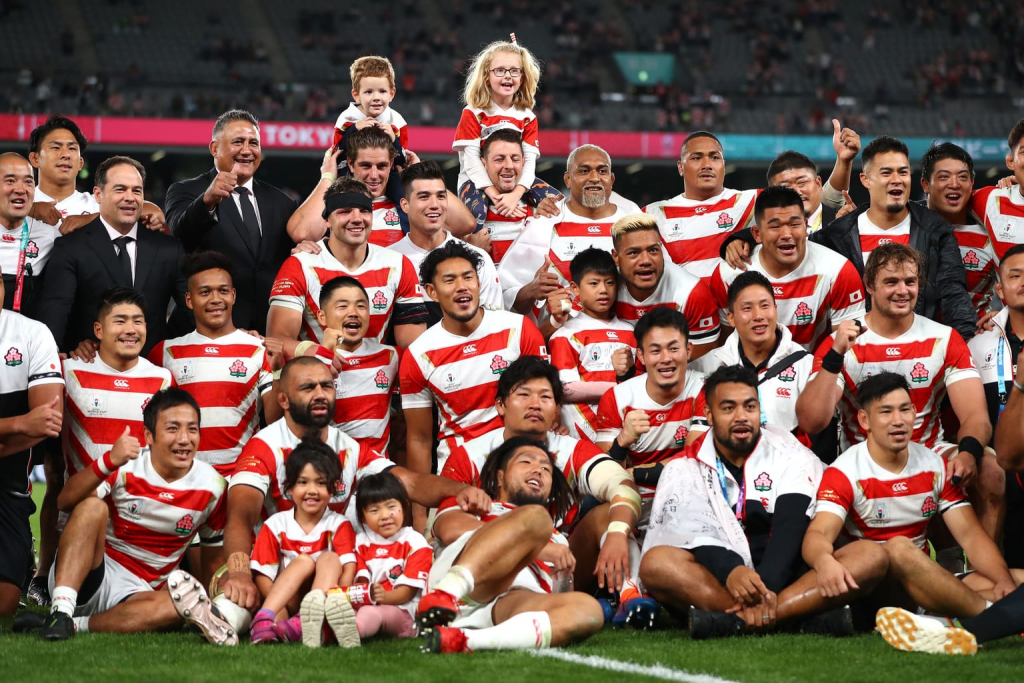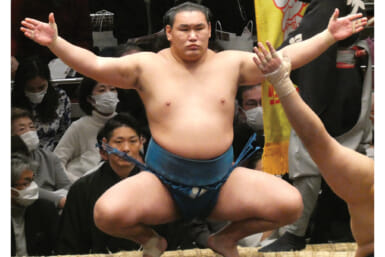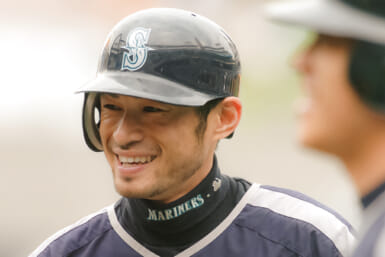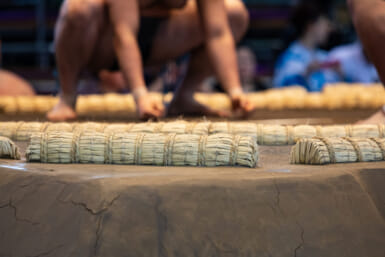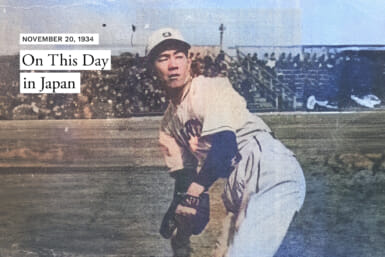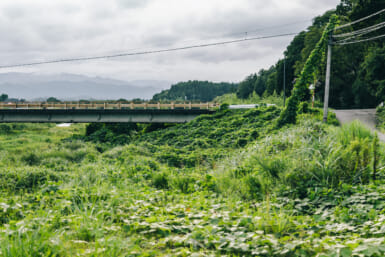Heroic isn’t an adjective typically attributed to sports teams that fall short of success, but it’s the most apt way to describe the performance of the Japanese players during the 2019 Rugby World Cup. The host nation captured the hearts of fans during the six-week showcase, playing a consistent brand of electrifying rugby. It has (hopefully) sown the seeds of a revolution within the national game.
On a slightly more sombre note, some of Japan’s 2019 rugby heroes will be hanging up the boots as the competition’s curtains close; for others the future is mired in uncertainty. Essentially, we are bidding farewell to a golden generation that seven weeks ago, scarcely a soul knew existed. Here’s what lies ahead for Japan’s 2019 RWC alumni:
Michael Leitch
Japan’s captain and rugby poster-boy, Michael Leitch, has reached a Hollywood-esque level of fame after guiding Japan to a history-making, first ever Rugby World Cup quarter-final. He may look considerably forlorn every time the camera is cast upon him, but it’s likely an expression of the passion and desire expressed so visibly in the way he plays the game: big hits, dogged aggression, a true talisman for the rest of his team.
The 6″2 flanker is 31 years of age, so his chances of captaining the side to France 2023 are not off the cards entirely, but a lot will depend on how his body holds up over the next four years. In the immediate future he’ll be back at the Tokyo Sunwolves for Super Rugby in 2020 in what is, unfortunately, set to be the club’s last season before disbandment.
Kotaro Matsushima
Kotaro Matsushima, the half-Zimbabwean, half-Japanese, pocket rocket has become another national icon during the World Cup. After scoring a hat-trick – the first by a Japanese player in the tournament’s history – in just over 60 minutes of the opening game, the flying winger was irrepressible, week after week. An apparently shy man off the field, his on-the-field heroics were anything but, and at 26 years old we can hope to see a lot more of him in years to come.
Matsushima plies his trade at the Tokyo Sunwolves, along with Tokyo-based Top League team Suntory Sungoliath. If SANZAAR do not make any restructuring plans for Super Rugby, and the Sunwolves bow out at the end of the 2019/20 season as intended, it would be great to see Matsushima sign for an external club, where fans could watch him in action on a regular basis; his stock will certainly have increased this autumn.
Yu Tamura
As Japan’s elected points-kicker, Yu Tamura spent a lot of time in the Rugby World Cup spotlight. The 30-year-old, out-half from Aichi Prefecture didn’t always have the steadiest of boots, but when the kicks really mattered, he tended to slot them. Let’s not forget that he was responsible for 14 of Japan’s 19 points in the team’s victory over Ireland.
Tamura will be joining Matsushima and Leitch at the Sunwolves next season and will be hoping that his World Cup performances will aid in wrestling the starting berth off of Kiwi Hayden Parker. In four years’ time Tamura will be nearing the end of his career, so the sun may have set on any future World Cup dreams. But as many a sports man can attest, never say never.
Luke Thompson
Luke Thompson is one of Japan’s marquee players to have officially announced his retirement. It should come as no surprise given that he retired in the past, before coming back for this year’s tournament at the ripe old age of 38; it’s quite extraordinary for a man who operates in the ‘engine room’ of the scrum. Fans have described the New Zealand-born, second row forward’s Japanese ideologue as “kawaii”; the way he plays the game is anything but. He’s a big grizzly ball carrier and a man who’s not afraid to do the unseen, dirty work that players in his position thrive on. The energy with which he did it in this World Cup made him look at least 10 years his junior.
Prior to the tournament Thompson told Japanese reporters in Kansai-ben, “This is definitely my last. I’m really looking forward to it – though I’m 38 and had just about enough.” Now the dust has settled, it has proved a fitting farewell.
Kenki Fukuoka
Kenki Fukuoka started the tournament as a substitute before making his way into the starting XV after try-scoring performances against Ireland and Samoa – including the try which secured Japan’s victory over Ireland. At 27 years old, the winger has plenty of years left in the tank, however he has decided to bring a premature end to his playing career.
Fukuoka will swap the playing paddock for the hospital ward after the World Cup, following in the family footsteps to become a doctor. He is set to sit medical school entrance exams in the coming months. For the last time to see him in action, you’ll have to tune in to next year’s 2020 Tokyo Olympics, where he will represent Japan’s sevens team in his last professional outing.
The Coach: Jamie Joseph
Jamie Joseph became an indelible part of the World Cup narrative, displaying an air of confidence in the press room and one of calm in the coaches’ box. While the players need to perform on the pitch, Joseph’s job of inspiring them, giving them the necessary direction and shaping their patterns of play cannot be understated.
The New Zealander has introduced clear southern hemisphere influences into Japan’s expansive style of play, while utilizing the players’ fitness levels in response to their comparatively smaller size: Japan try to keep the ball in play for around 50 minutes per game – 5-10 minutes longer than the average for most other teams. But what Joseph brought more than anything else to this Japanese side was belief. And when belief and genuine quality meet, it really does feel like anything is possible.
Joseph has not yet decided anything on his future. Pundits are tipping him for the now available All Blacks head coaching position, while he hasn’t ruled out the prospect of a contract extension with the Brave Blossoms (though word on the street is that this is unlikely). If Japan can hold on to him for another four years however, they could be an even more formidable beast come Rugby World Cup 2023.
Feature photo by Clive Rose – World Rugby via Getty Images

